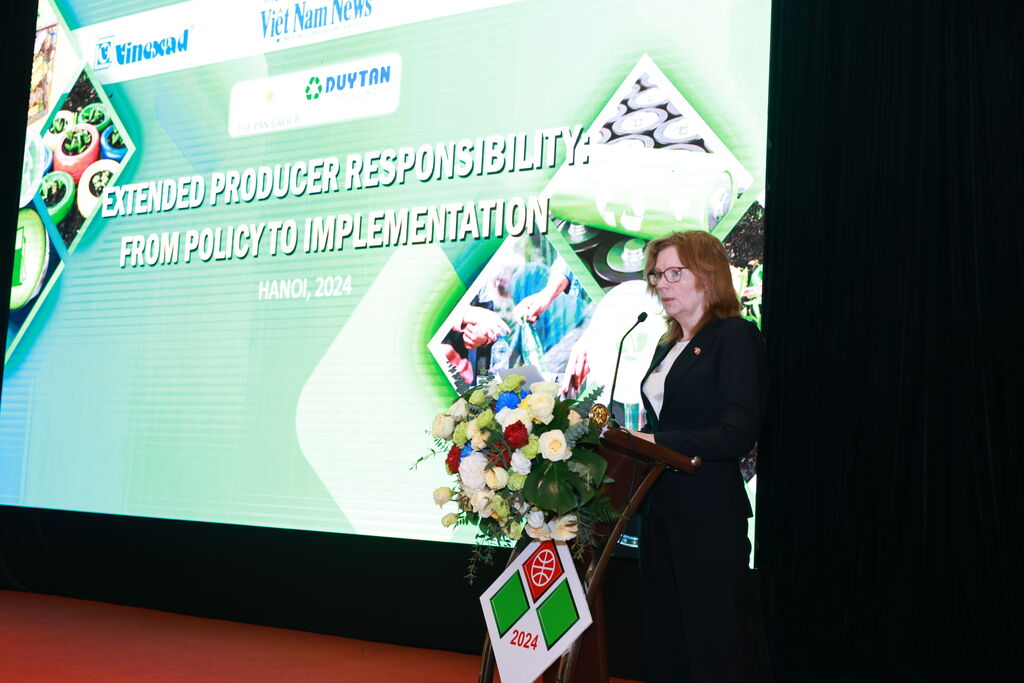 |
| Mette Moglestue, Deputy Head of Mission from the Norwegian Embassy in Vietnam speaks at the seminar__Photo: VNA |
Extended Producer Responsibility is one of the best proven tools to enforce the “polluter pays principle”, Mette Moglestue, Deputy Head of Mission from the Norwegian Embassy in Vietnam, said at the seminar “Extended Producer Responsibility: From Policy to Implementation” organized by Việt Nam News, Vietnam News Agency, in Hanoi on April 4.
Moglestue pointed out that Extended Producer Responsibility (EPR) schemes, ranging from simple to complex organizational systems, have a broad impact beyond environmental benefits.
This approach stimulates economic growth by fostering collaboration within the recycling chain, creating job opportunities, and expanding markets for recycled products. It addresses some of the immediate challenges of plastic waste and contributes to long-term sustainable development goals, she said.
To achieve sustainable development goals, Moglestue stressed the importance of synergy and international collaboration, adding that all stakeholders must come together to pursue a common ambitious goal to develop an efficient EPR scheme.
Speaking at the event, Doan Thi Tuyet Nhung, Deputy Director-General of the Vietnam News Agency, highlighted that EPR implementation is a key task to achieve sustainable development for manufacturers and businesses, especially as Vietnam has been struggling with severe impacts caused by pollution and climate change.
“Implementing EPR will contribute to preserving resources for the future, reducing environmentally damaging waste, demonstrating businesses’ sense of social responsibility, and contributing to realizing Vietnam’s commitment at the COP26 to achieve net-zero emissions by 2050,” she stressed.
Meanwhile, Phan Tuan Hung, Director of the Department of Legal Affairs under the Ministry of Natural Resources and Environment, said EPR offers an opportunity for businesses to share the burden of waste on communities while achieving the target of sustainable development.
He said this is a very good opportunity for recyclers as they will have more financial support from the EPR Fund in addition to revenue from their business activities.
According to industry experts, EPR is not only a responsibility but also an opportunity for businesses to develop more sustainably. By implementing EPR, businesses can meet the increasingly high demands of partners and participate extensively in the global value chain.- (VLLF)









